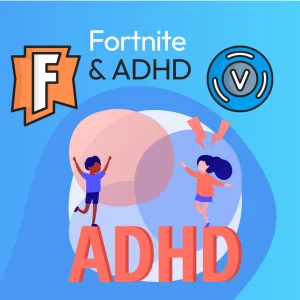Typically, when I hear conversations about diversity people are talking about one of a couple of things: race, sexual orientation, or religion. Other less-commonly talked about attributes along which people differ include culture, ethnicity, socio-economic status, age, education, geographic location, and even birthdays are assigned different astrological attributes. I happen to be a Taurus. Astrology was an early attempt to understand why people differed from one another. The thought was that based on the month and year you were born, according to astrology, you might have different personality characteristics. Aries, born around April, are “bold and ambitious.” July born Leo’s are “vivacious, theatrical and passionate.” Libra’s, born in October, are associated with “balance, symmetry, and strives to create equilibrium in their lives.”
While astrology was an early attempt to systematically understand personality differences, the modern-day science of psychology has taken us even further in understanding the unique characteristics of personality. Understanding personality is critical for young people. In better understanding themselves and better understanding the diversity inside of others, young people can interact more productively and confidently with the world around them.
“Understanding personality is critical for young people.”
What is Personality?
Differences in personality account for the largest differences between people. Thus, it makes sense that defining personality may be difficult. People have motivational systems that are based on biology and drive our behaviors. An example of one of these motivational systems might be hunger. When someone is hungry they become motivated to seek out food. “Hangry” is a term that comes to mind. When a person is hungry, their personality changes. Someone might even be “a different person” when they are hungry. Emotional systems are the second component in determining behavior. If our motivational systems set the goals, the emotional systems regulate our progress towards them. Our emotional systems help keep us on track while we are pursuing the things that matter.
The Five-Factor Model
The Five-Factor Model, or “The Big Five,” is a grouping of personality traits based on a statistical technique called factor analysis. Researchers ask a whole bunch of people a lot of different questions and they group those responses into similar items. For example, a person would likely respond to the statement I enjoy trying new restaurants similarly to how they would respond to the statement meeting new people is exciting.
In a factor analysis, all of the individual answers to those two questions would be correlated. And we might even discover that the answer to one of the questions could predict the answer to the other (e.g., A person who enjoys trying new restaurants is likely to find meeting new people exciting). After hundreds of these kinds of questions were asked to thousands of people we could see that 15-20 different questions grouped together in a reliable way. That group is called a “factor.” When researchers ask all different kinds of personality related questions, they reliably find 5 Factors.
O.C.E.A.N. – The Acronym for the Big 5
O.C.E.A.N. is the common acronym for those 5-factors.
Openness to experience is a general appreciation for novelty. New ideas, art, emotions, adventure, imagination, and curiosity are all measured under the trait of Openness.
Consciousness people generally are disciplined, and strive for high achievement. These folks can be stubborn, inflexible, and struggle to act in spontaneous ways.
Extraversion is a general measure of positive emotion. Different than “Extroversion,” extraverted people tend to be enthusiastic, enjoy others, and find themselves as happy and content.
Agreeableness is the fourth dimension of personality measured by the Big 5. People who are agreeable have a great concern for social harmony. Agreeable people are more willing to compromise, and generally hold more optimistic views about the state of the world, and their interpersonal interactions with others.
The final Factor is Neuroticism, a measure of negative emotion or emotional instability. People with high levels of neuroticism are likely to experience anxiety and depression. The traits of Neuroticism and Extraversion are inversely related; meaning that people who experience more and more positive emotion (Extraversion) become less and less likely to experience large amounts of negative emotion (Neuroticism).
“Openness, Consciousness, Extraversion, Agreeableness, and Neuroticism are the different dimensions of the Big-5 Personality Traits.”
O.C.E.A.N. traits are measured on a continuum. And each trait has its opposite characteristics. A person can be highly Open to new experiences, or they can rank low in trait Openness and be not as open to new experiences. People fall along a continuum of each of these traits, which seem to be relatively stable over time. Suggesting that people don’t really change all that much. When we assess their agreeableness, for example, people who are highly agreeable remain agreeable throughout their life. These overly agreeable individuals might be vulnerable to predation, as one could imagine. However, being aware of ones agreeableness can help them counter balance to avoid over-extending themselves.
When you understand yourself, you are able to know and accept the different aspects of your personality. Accepting the different aspects of your personality helps a person adapt to their environment in the most functional ways possible. Knowing that I am not likely very open to new experiences helps me be aware why it is that I order the same thing at the three different restaurants I am willing to frequent.
When engaging in conversations about diversity, certainly don’t minimize the impact of race, ethnicity, nationality, education, or socio-economic status. However, remember that personality is something that we all share. Research suggests that we all fall at different places along the continuum of personality. Each of us has different characteristics that make us utterly unique from one another. The gift of understanding personality is that we can use our knowledge to engage our fellow man. We can give compassion and empathy to others. We can accept their differences because we know ourselves.
Check out some of our other recent posts!




1 thought on “Personality: The heart of diversity”
Pingback: Conflict Resolution Archives - Stand 4 Kind